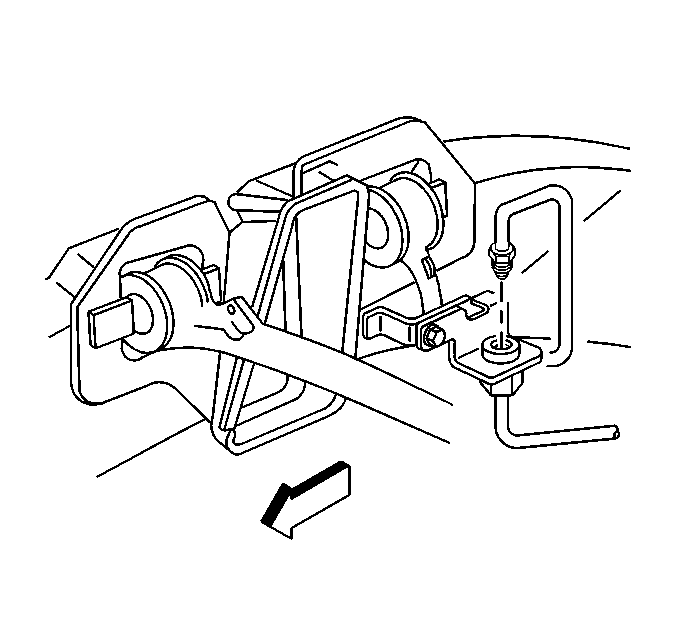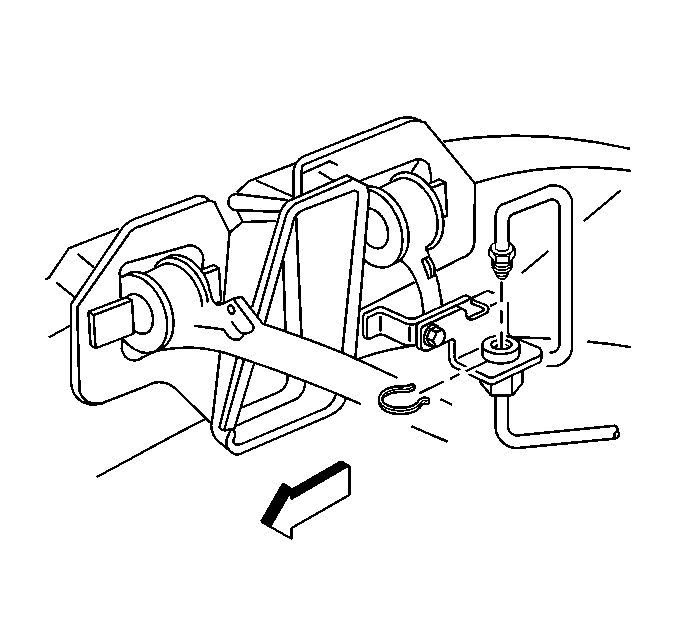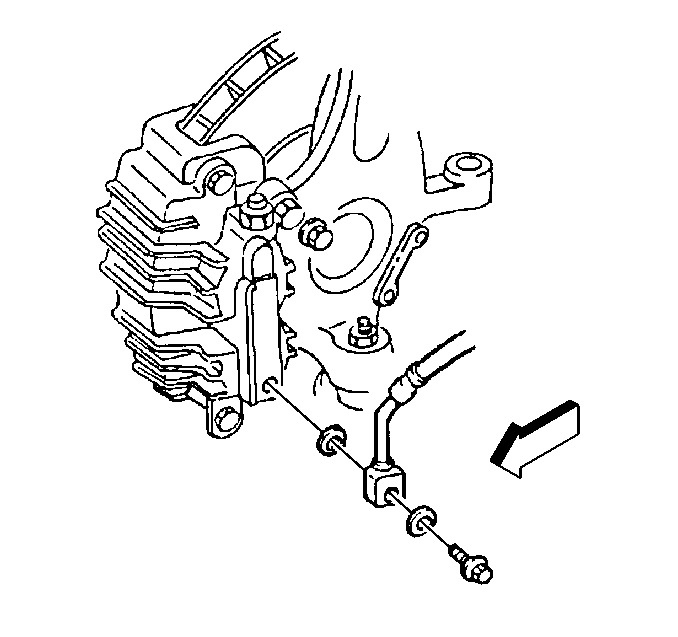Removal Procedure
- Clean dirt and foreign material from the brake hoses and fittings.
- Raise the vehicle and support. Refer to Lifting and Jacking the Vehicle in General Information.
- Remove the tire and wheel assembly.
- Remove the brake pipe or crossover pipe from the brake hose.
- Remove the retainer from the brake hose at the bracket.
- Remove the brake hose from the bracket.
- Remove the brake caliper inlet fitting bolt, brake hose and two aluminum gaskets from the brake caliper.
- Discard the aluminum gaskets.



Installation Procedure
- Install the brake caliper inlet fitting bolt, brake hose and two NEW aluminum gaskets to the brake caliper.
- Install the brake hose to the bracket.
- Install the retainer onto the brake hose fitting at the bracket.
- Install the brake or crossover pipe to the brake hose.
- Install the tire and wheel assembly.
- Lower the vehicle.
- Bleed the brakes. Refer to Hydraulic Brake System Bleeding

Tighten
Tighten the brake caliper inlet fitting bolt to 40 N·m
(30 lb ft).
Notice: Use the correct fastener in the correct location. Replacement fasteners must be the correct part number for that application. Fasteners requiring replacement or fasteners requiring the use of thread locking compound or sealant are identified in the service procedure. Do not use paints, lubricants, or corrosion inhibitors on fasteners or fastener joint surfaces unless specified. These coatings affect fastener torque and joint clamping force and may damage the fastener. Use the correct tightening sequence and specifications when installing fasteners in order to avoid damage to parts and systems.


Tighten
Tighten the brake pipe or crossover pipe nut to 16 N·m
(12 lb ft).
Tighten
Tighten the wheel nuts to 140 N·m (100 lb ft).
